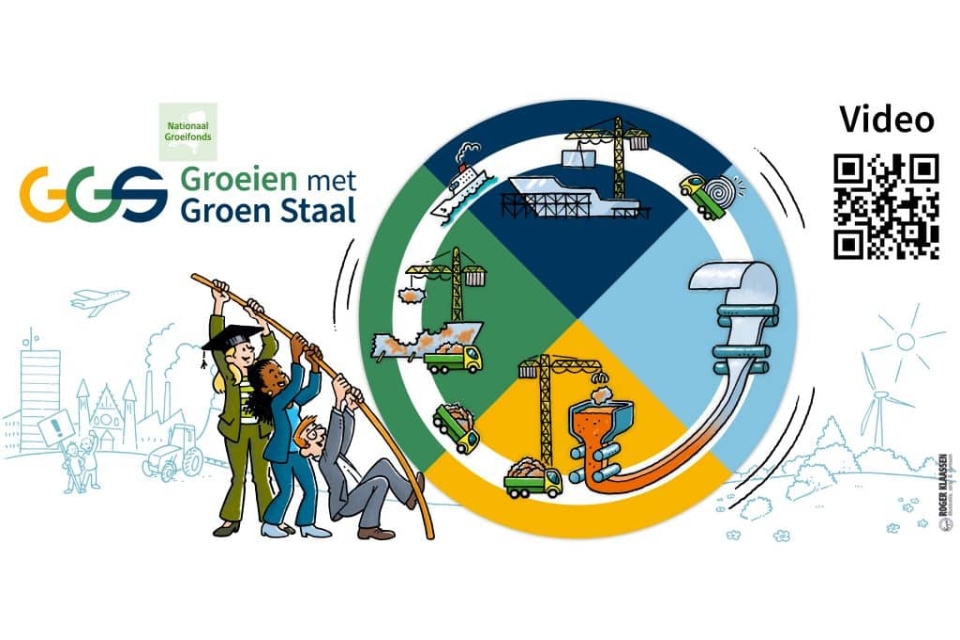On 12 February, the Growing with Green Steel programme received official approval for a grant of more than EUR 100 million from the Dutch National Growth Fund. The programme aims to develop scientific knowledge and technology for sustainable steel production.
Steel production accounts for seven per cent of global CO2 emissions. That is why 31 parties, both research institutes and industry, are joining forces to develop a new set of technologies based on hydrogen, renewable energy and circular iron and steel processing. The ultimate goal is a CO2-neutral steel sector by 2050.
Also read: TU Delft faculty 3mE becomes Mechanical Engineering
New production process
The programme focuses on transforming the entire steel cycle in the Netherlands. It studies, among other things, how hydrogen and more recycling can be used to make greener steel, but also how new processes can produce high-quality steel. Because all these adjustments in steel production affect the final product.
Changes in chemical composition give the steel different properties, such as strength and corrosion resistance. This means that green steel will have an effect not only on steel production companies, but on the entire steel processing industry, from wind turbines to drinking cans, and thus on society.
Large role for TU Delft
Around EUR 22 million of the total sum is destined for the Delft University of Technology (TU Delft). From the Faculty of Mechanical Engineering, the Materials Science and Engineering (MSE) department in particular has a strong presence in this programme.
With expertise in the metallurgy of steel, the commitment of the MSE department is crucial, especially for the primary production and recycling of steel and the optimisation of microstructures. The new technologies and the science behind them will also be incorporated into the Master Materials Science and Engineering.
Also read: TU Delft launches Wind Assisted Ship Propulsion Research Programme
Climate goals
The eight-year programme has a total budget of almost EUR 130 million, of which EUR 100 million comes from the National Growth Fund. Besides providing the necessary funding, the programme aims at a coordinated and accelerated steel transition, which is necessary to meet Dutch and European climate goals for 2030 and 2050.
Picture by Groeien met Groen Staal.
Also read: Rotterdam throughput drops in 2023, focus on transition








